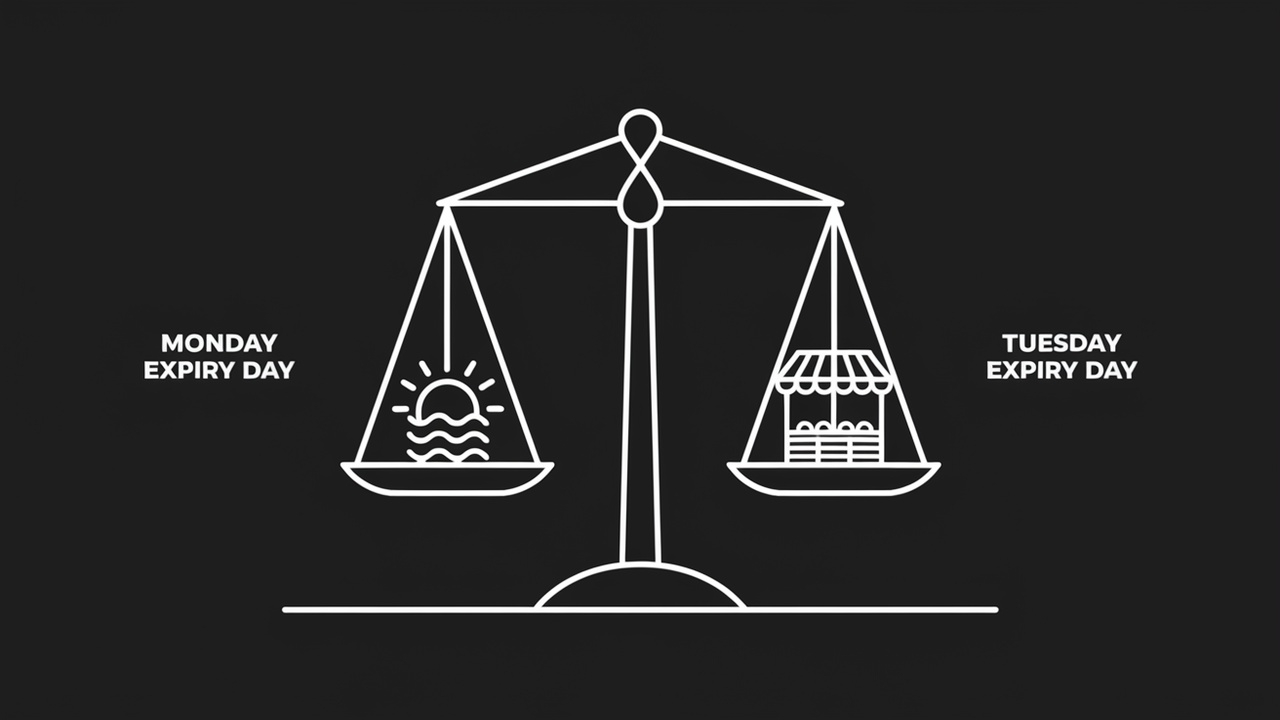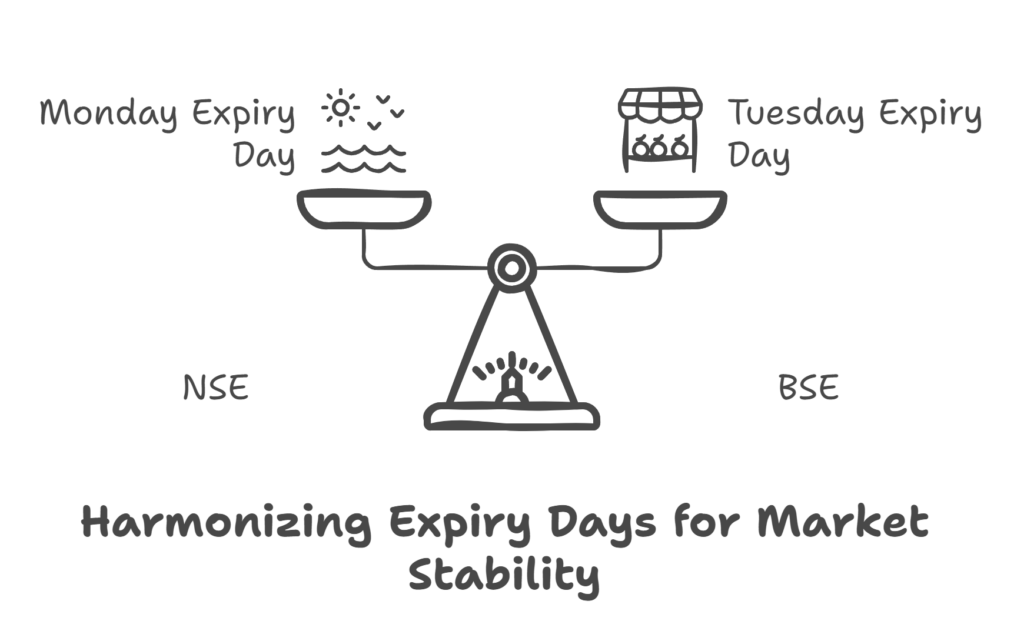SEBI’s Derivatives Days Easy Plan
MUMBAI — The Securities and Exchange Board of India (SEBI), on March 27, 2025, took away derivatives expiry days from Fridays, moving only to Tuesdays or Thursdays.

The change, detailed in a consultation paper, is intended to simplify trading and enhance stability in India’s booming market. It’s a move to support investors and keep the situation stable.
Why Change Expiry Days?
With regard to the smoothening of our trading, SEBI would like to address it. Equity derivatives currently expire on different days on different exchanges. Nifty expiries were shifted to Mondays with effect from April 4 by national stock exchange (NSE). The Bombay Stock Exchange (BSE) retains Tuesdays. Such cross-contamination can be mystifying for traders and jolt what are already volatile markets. SEBI’s plan lays down an easy rule—choose Tuesday or Thursday.

The goal is to have expiries spread evenly. With two set days, trading won’t be bunched up at the beginning or the end of the week. “This provides optimal spacing and reduces risks,” SEBI said in its discussion paper. Weeklys were limited to one day for index options. Other contracts, such as futures, will move to monthly expiries on the last Tuesday or Thursday.
India has a large derivatives market. In 2024, daily turnover reached Rs 400 trillion. But there may be trouble brewing with too many expiry days. SEBI is counting on fewer, fixed days to calm things down. It’s also responding to Monday’s switch by NSE, which conflicted with BSE’s timing. The regulator seeks harmony, not chaos.
How It Will Work
Here’s the game plan: Each exchange chooses Tuesday or Thursday. Weekly options on a benchmark index — Nifty and Sensex, for instance — are confined to the day. Everything else is a one-month term and expires late in the month. SEBI’s approval is needed for exchanges to amend these rules. No more random changes.
Take NSE and BSE. NSE prefers Thursday, while BSE Tuesday That splits expiries evenly across the week. Traders get a steady rhythm. “It’s about predictability,” said Ankit Shah, an analyst at TradeRiser in Mumbai. “Less expiry days means less crazy trading all at once. This, SEBI’s paper says, reduces “concentration risk”—when an excessive amount of action occurs on one day.
The shift isn’t sudden. SEBI has sought feedback by April 17. So exchanges, brokers, and traders will have the final word; and past SEBI action indicates (in SEBI’s own words) that it listens. In October, 2024 it limited weekly options to one index per exchange. The NSE removed Bank Nifty weekly contracts. BSE axed Sensex 50. This new proposal adds to that, reaching for order.
Background and Market Impact
Lately, India’s derivatives scene exploded. Retail traders piled in, chasing fast gains. But losses mounted — Rs 51,689 crore in FY24, according to SEBI data. The regulator’s been cracking down on the rules since. Last year, it had raised the contract sizes to Rs 15-20 lakh. Now, it’s taking on expiry chaos.
“Hyperactivity” Around Multiple Expiry Days Prices are there, swinging a fair bit, especially on expiry. SEBI has witnessed this deprive small investors. It hopes that by choosing two days, it can spread the action out. During the quarter, BSE’s market share in futures and options (F&O) rose to 36.8%, from 4.2% a year ago. Competition is hot, but SEBI wants to reign it in.
NSE’s move of Monday ruffled things. Traders worried about losing volume BSE stock fell SEBI’s proposal could change the game altogether. Both can thrive if NSE goes back to Thursday, BSE remains Tuesday. Traders are divided, with some praising clarity while others miss flexibility, according to posts on X.
What’s Next for Traders?
This may alter India’s trading pattern. Less expiry days could mean reduced costs for brokers. So less overlap means smoother operations. But others are concerned about diminished choice. For many, weekly options are fast cash. Monthly terms slow that down. Traders may adjust — or complain.
SEBI’s intentions are clear: Protect investors; steady the market. If authorized, rules could take effect as early as mid-2025. Exchanges will choose their date shortly thereafter. “It’s a balance,” Shah said. “Stability is important but freedom is, too.” The final decision will be made based on the feedback period. NSE and BSE will lobby a lot of course.
For retail traders, it is a heads-up. Less volatile set dates based on expiries. Monthly contracts require additional payment upfront. And volatility may drop, but so, potentially, will quick profits. The SEBI is now under the market’s scanner. A more stable F&O space could allure global funds. Or it could shrink volumes if traders balk.
Looking Ahead
The SEBI proposal is a broad stroke on order. Success hinges on execution. Exchanges lap in together, India’s Rs 400 trillion market could keep humming. But pushback looms. Traders who enjoy the initial wild ride of the multi-day expiries. Others view this as a lifeline to sanity.
Next steps are key. Comment period ends on April 17. Then SEBI decides. The new setup may be tested by exchanges by summer. If successful, India’s market could be first-in-class on transparency. If not, SEBI may revise once again. For now, it’s a daring attempt to tame a wild beast — and protect investors.